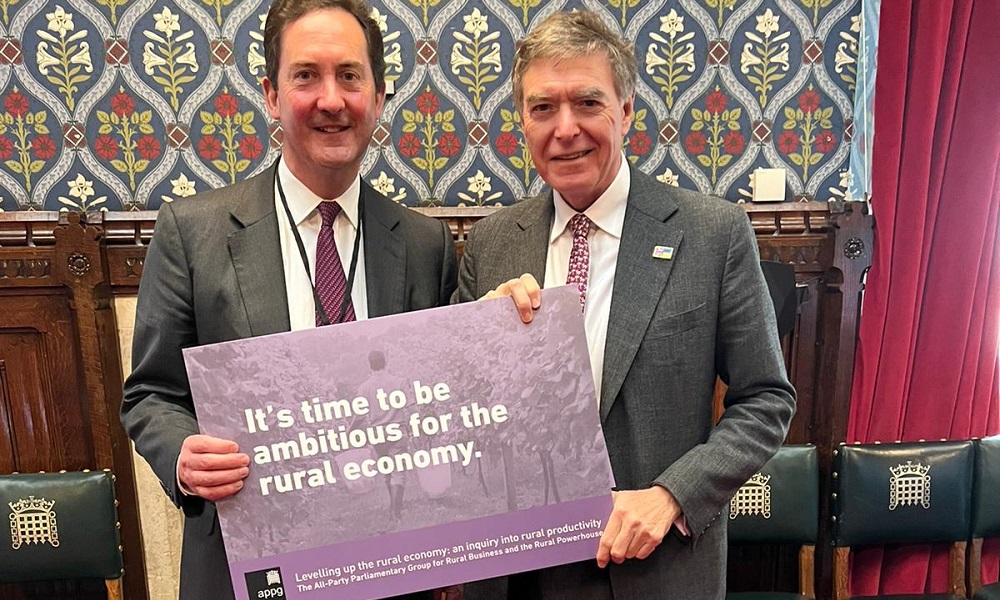South Shropshire MP, Philip Dunne has joined calls for a Rural Economy White Paper at the launch of a new report by the All-Party Parliamentary Group on The Rural Powerhouse in Parliament on Wednesday.

The report sets out a comprehensive blueprint for economic growth in rural communities, transforming the lives of millions of people who live and work in the countryside. The report makes 27 recommendations on ways to close the rural productivity gap, adding a potential £43bn to UK GVA per year.
The report concludes that no government in recent memory has had a program to unlock the economic and social potential of the countryside, and sets out how to improve productivity in rural businesses. The rural economy is currently 18% less productive than the national average. Closing this gap would add £43bn to the UK economy. Evidence from over 50 bodies found that planning, tax, connectivity, skills, agricultural policy, and lack of ministerial direction is holding the rural economy back.
Mr Dunne, who chairs the APPG on Rural Services, said:
‘It’s time to be ambitious for the rural economy. I know that rural businesses in South Shropshire have lots of potential to grow, create jobs and contribute even more to our communities. We need to identify the barriers they face and remove them. That’s why I am supporting calls for a White Paper on the rural economy to be announced in the forthcoming Queen’s Speech.”
The key policy recommendations to boost rural productivity include:
- Planning – the National Planning Policy Framework (NPPF) should prioritise small-scale, incremental development in rural areas, particularly those with populations under 3,000, with a focus on affordable housing.
- Whitehall – a ministerial-led, cross-departmental working group with the specific mission of developing and implementing measures to boost rural productivity should be established, the rural proofing policy should be reformed and strengthened, and Defra's objectives should be re-examined, with rural productivity included in its remit.
- Farming – to alleviate labour shortages, the Seasonal Workers Pilot should be extended and the number of visas available increased from 30,000 to 80,000, and address low pricing in supply chains by implementing the Agriculture Act 2020's regulations to limit the influence of major supermarkets.
- Tax – simplify the tax system for diversified businesses through the Rural Business Unit (RBU), which would allow rural businesses to make their own decisions, reduce bureaucracy, increase tax collection for the Exchequer, and would remove hurdles to the growth of new business ventures.
- Connectivity – DCMS and the industry should produce an accessible roadmap for the 15% hardest-to-reach homes, with tangible targets for those left behind.
- Skills – the government should provide vouchers for rural enterprises to stimulate demand for business, technical, and environmental training, and build a natural capital skills strategy to identify skills shortages and how to close them.
